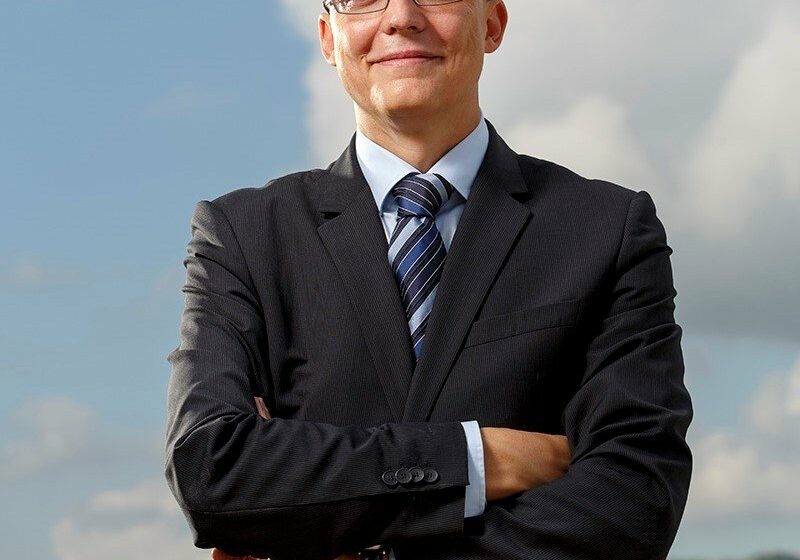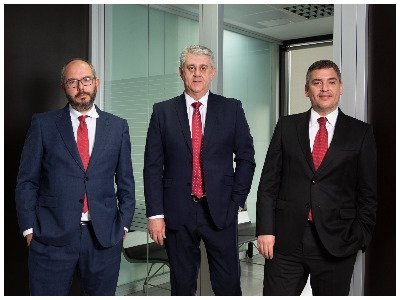Irene Terrazas: “It is important to put yourself in the customer’s shoes”

She left Science for Arts studies. This 28-year-old lawyer has gained a very solid position within the profession, specifically in her specialities; Public Procurement, Commercial and Corporate Law among others. As a lawyer at Mariscal & Abogados for almost three years, she recognises that mentoring is a fundamental part of learning, especially in the legal sector. Working with clients from several jurisdictions, she is grateful for her international training for the possibilities of meeting people from other countries and living with different cultures, as well as being tolerant and versatile at work.

At just 28 years old, you have gained a very solid position within the profession, specifically in your areas of expertise (Public, Commercial, Corporate Law, etc.). You have not lost your time. Did you always want to become a lawyer? How did you plan your career to make sure you are where you are? Who advised you? Tell us your story briefly.
The truth is that I had never thought about studying Law. In fact, I studied sciences in high school. Initially, I was thinking of studying something related to health sciences… how curious the twists and turns of life!
In relation to how I planned my career, I think I would have changed several things looking backwards, although I do not regret any of my decisions. Planning what I wanted to do was not very easy, especially since I did not have family or friends in the law firms world who could guide me or provide me with useful information. However, I have always bet on international experience, a good postgraduate education and languages.
Woman and lawyer, your colleagues at the law firm speak highly of you. What do you think about the Gender Gap? Does gender-based discrimination affect you or have you been affected by it in the past?
At a personal level, I have to say that I have never felt discriminated on a gender basis. However, despite my short professional experience, I have seen women around me who have suffered some kind of discrimination, and I know several cases indirectly, through colleagues who work in other firms.
Regarding the Gender Gap, I believe that in this sector it is a reality, especially in older generations. Nevertheless, I consider that we are taking many steps forward to change this situation, and that, fortunately, my generation will witness a great improvement.
You are still very young but you don’t need to have a family to want to do something more than work in this life, what do you think about this question? Fortunately, in the legal sector, we have quite a few examples that show that it is no longer a sine qua non-condition to have to choose between professional and family life. What are your models in this regard and why? Which women inspire you (whether or not they are from the legal sector)?
We are experiencing an unprecedented paradigm shift on this issue. For me, the cornerstone of this important change has been the implementation of home office, which has been accelerated due to the pandemic situation (at least the virus had something positive).
From my personal experience, and thanks to being able to work from home several days a week, I have discovered that it is possible to combine a job that I am passionate about and that requires dedication, with my personal life.
To reach such balance, it is also important to have a good team around you; be able to count on a colleague to “help you out” if a relevant personal question arises in the middle of a relevant transaction.
As for the women I have been inspired by, I would cite all the women in my family, my mother and grandmother in particular, who have always been hard-working and independent women, something that my family has instilled since I was a child.
You are able to work in various jurisdictions. How did you have to train for this? Is it difficult to change the mindset depending on the jurisdiction in which you intervene?
Depending on the jurisdiction, there may be important differences that can complicate the management of some transactions. However, I believe that the main asset to carry this out successfully is having an open mind and being able to understand clients with very diverse cultures and substantially different to Mediterranean customs.
It is important to put yourself in the client’s shoes and understand that problems can be approached in many different ways, being all of them valid.
In my case, working for other jurisdictions or with clients from different nationalities has never been too complicated due to two main reasons: my education, and the fact that at Mariscal, 95% of our clients are international. It is constant learning and is enormously enriching, both professionally and personally.
From the transactions you have lead or in which you have participated, which one (s) have been the greatest achievement/satisfaction for you? And in which one / s have you learned the most?
How difficult to make a choice!
The one that has given me the most satisfaction was the first transaction I carried out in the energy sector, which we closed with the team at the end of 2019. The transaction was very complex to structure, with many parties involved and with last-minute negotiations and unforeseen events. The adrenaline of the intense transaction itself, jointly with the fact that I was executing my debut in the energy sector, makes this transaction unforgettable.
On the other hand, the transaction in which I have learned the most in my professional experience was the closing of a contract that affected various public bodies at a national and international level, and in which the balance between public and private interests was quite delicate. Our client was a Norwegian company, a key player in the transaction. The negotiations, which lasted more than one year, taught me that, in this sector, personal skills can play a more important role than technical-legal solvency, which, in the end, is presupposed to any experienced well-educated lawyer.
To dedicate yourself to any speciality of Law mentoring is a very important value. How would you say mentoring has influenced your career so far and who have been your mentors?
In my view and from my experience, mentoring is a fundamental part of learning, especially in the legal sector.
In my short professional experience, I clearly have two references, from which I am fortunate to have learned.
The first reference is Isabel Pinazo, who taught me to be patient in the meaning that, achieving excellence requires time and dedication. She also taught me how important it is to have people on your team that you can trust.
My second mentor, Alberto Álvarez, with whom I have been working side by side for more than 3 years, has taught me so many things that it is impossible to name them all in one answer: teamwork, horizontality, excellence, dealing with the client and, above all, trust.
Alberto is clearly the direct responsible that I am writing these words today. It is difficult to thank him enough for the dedication and patience he has had all this time, and that continues to have on a daily basis to teach me. Everyone should be as lucky as I have been.
You have been educated in different countries. Do you think this has contributed to having a stronger international profile?
Definitely. From my experience, meeting people from other countries and living within different cultures makes you tolerant and versatile at work; It is very useful to be able to make use of what you learn in other work environments and apply it in Spain.
International training provides, in my opinion, a much greater capacity to adapt to complex or changing situations, and helps to empathise with people who apply working methods that are very different to Mediterranean culture.
In short, from my perspective, international training is enormously enriching and useful, especially in the globalised world we are living in.
We are still in the throes of the pandemic, what characteristics of your personality have helped you stay strong during this period of uncertainty?
I consider this pandemic to have been a crash course for many of us, as well as a humbling experience. In the legal sector, and I think this can be extended to many others, I consider that the best characteristic to face this new reality is the ability to adapt to new circumstances quickly and nimbly.
We are experiencing a period of unprecedented change and uncertainty. During this last year, I have been able to verify that, what clients demand the most in general, are fast and effective solutions to their problems. In this sense, it is essential to anticipate possible changes and be “creative” to provide effective solutions to the clients’ problems.
Another issue that I consider especially relevant for clients is the availability and proximity that we have as lawyers. When a client has a problem that is causing them uneasiness, immediacy is essential when dealing with the situation. After all, clients need to be covered on the legal side to be able to fully dedicate themselves to their respective businesses.
The pandemic has more or less disrupted everyone’s plans, what are your plans for the future in the short, medium and long term?
As the situation is evolving, it is difficult to have a clear idea or a concrete answer to this question. For now, I would like to continue at Mariscal, learning as I am doing, in an international environment, and with a very dynamic and interesting job. As I always tell my friends and family: “I never get bored at work.”
In principle, I would like to make myself a place in the legal world, and I do not discard to consolidate my professional career outside of Spain.
By Desiré Vidal Perea
To read the interview in full please download issue N.103 here.












